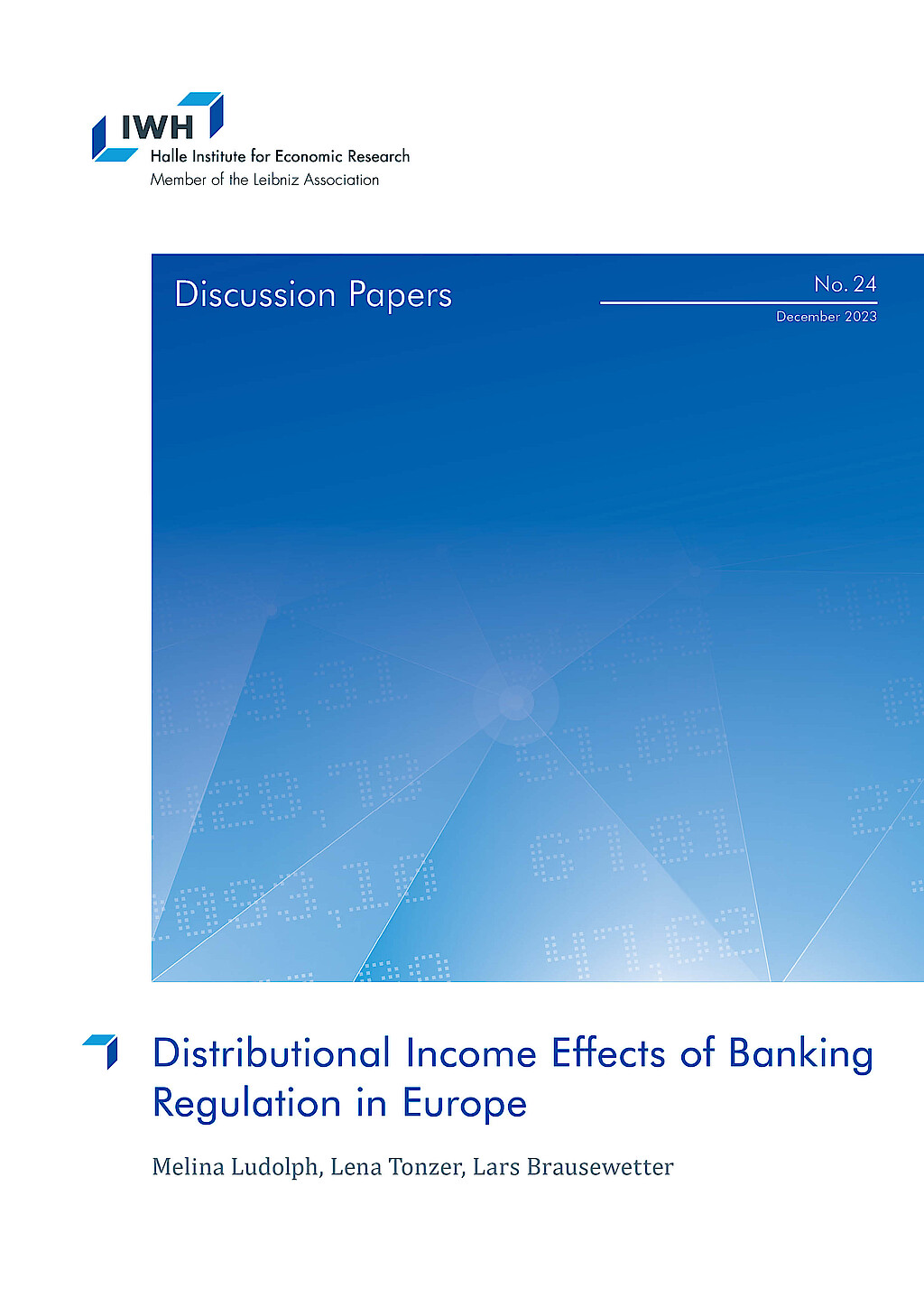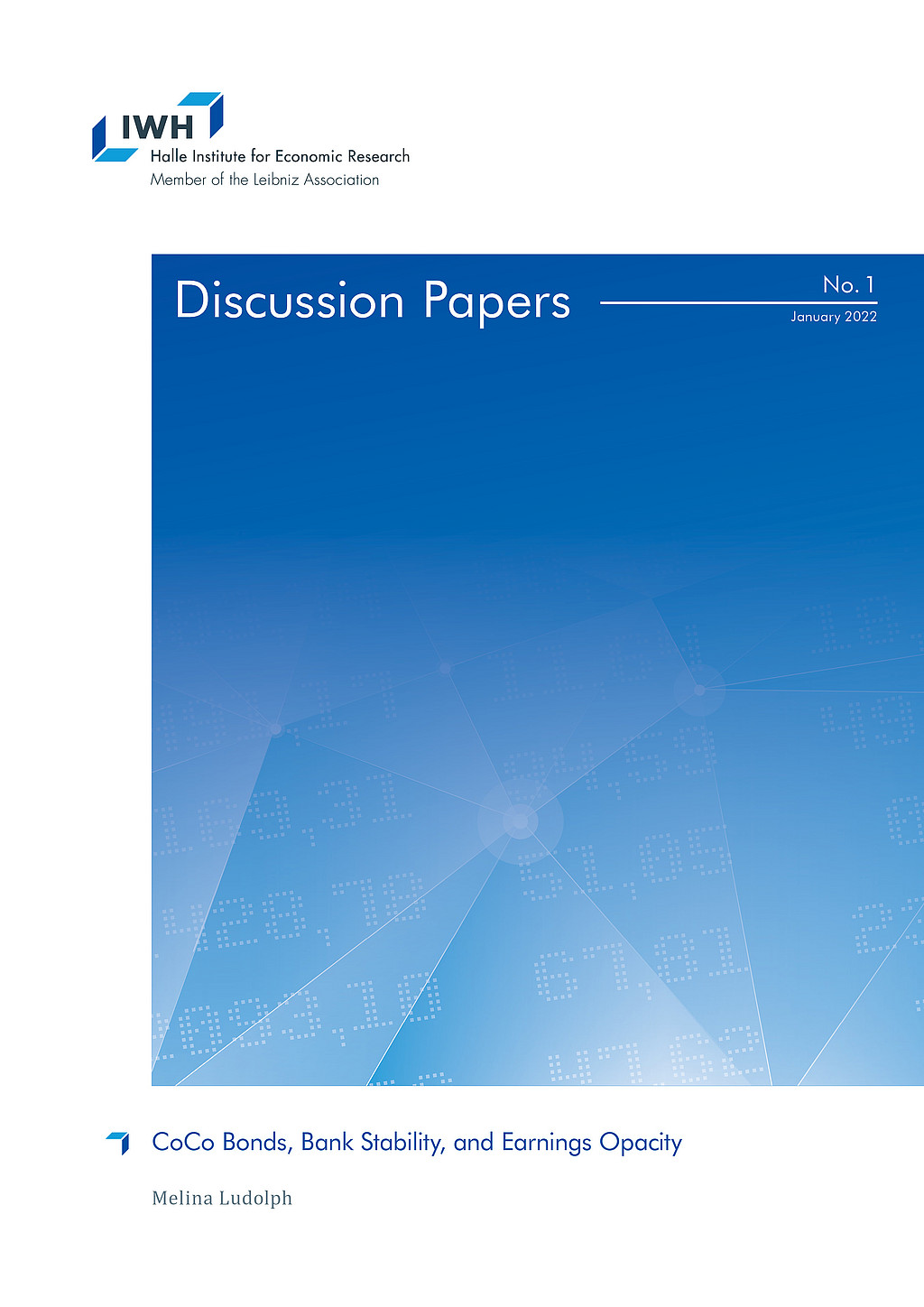Professor Dr Melina Ludolph

Current Position
since 1/23
Head of the Research Group Banking, Regulation, and Incentive Structures
Halle Institute for Economic Research (IWH) – Member of the Leibniz Association
since 9/21
Economist in the Department of Laws, Regulations and Factor Markets
Halle Institute for Economic Research (IWH) – Member of the Leibniz Association
since 9/21
Assistant Professor
Otto von Guericke University Magdeburg
Research Interests
- banking regulation
- financial stability
- financial crises
- applied econometrics
Melina Ludolph joined the institute in September 2021. She is Assistant Professor at Otto von Guericke University Magdeburg. Her research focuses on banking regulation, financial stability, financial crises, and applied econometrics.
Melina Ludolph received her master's degree and her PhD from Humboldt-Universität zu Berlin.








